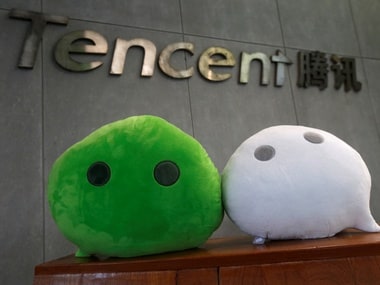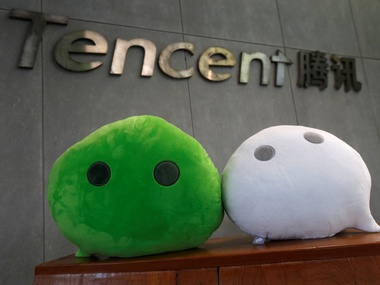Tencent Holdings chairman pledged to advance China’s semiconductor industry, saying the blow to ZTE Corp from Washington’s ban on US firms supplying telecommunications company was a “wake-up” call, local media reported. [caption id=“attachment_3938371” align=“alignleft” width=“380”]  Representational image. Reuters.[/caption] China’s second telecom equipment maker ZTE was banned in April from buying US technology components for seven years for breaking an agreement reached after it violated US sanctions against Iran and North Korea. American firms are estimated to provide 25-30 percent of the components used in ZTE’s equipment. While the US administration said on 25 May that it had reached a deal to put ZTE back in business after the company pays a $1.3 billion fine and makes management changes, the plan has run into resistance in Congress, indicating ZTE was still far from out of the woods. Also, ZTE is yet to confirm the deal. “The recent ZTE incident made everyone more clearly realise that however advanced one may be in mobile payment, without the mobile, the chips and the operating system, you still cannot compete,” Chinese media reports cited Tencent’s Pony Ma as saying at a forum in Shenzhen on 26 May. Tencent, which alternates with Alibaba Group to be Asia’s most valuable listed company, is the largest social media and gaming company in China and operates the popular WeChat app. Ma said, “even though the ZTE situation was in the process of being resolved, we must not lose vigilance at this time and should pay more attention to fundamental scientific research”. Tencent is looking into ways it could help advance China’s domestic chip industry, which could include leveraging its huge data demand to urge domestic chip suppliers to come up with better solutions, or using its WeChat platform to support application developments based on Chinese chips, Ma said. “It would probably be better if we could get in to support semiconductor R&D, but that is perhaps admittedly not our strong suit and may need the help of others in the supply chain.” China has been looking to accelerate plans to develop its semiconductor market to reduce its heavy reliance on imports and has invited overseas investors to invest in the country’s top state-backed chip fund.
Tencent is looking into ways of leveraging its huge data demand to urge domestic chip suppliers to come up with better solutions.
Advertisement
End of Article


)
)
)
)
)
)
)
)
)



